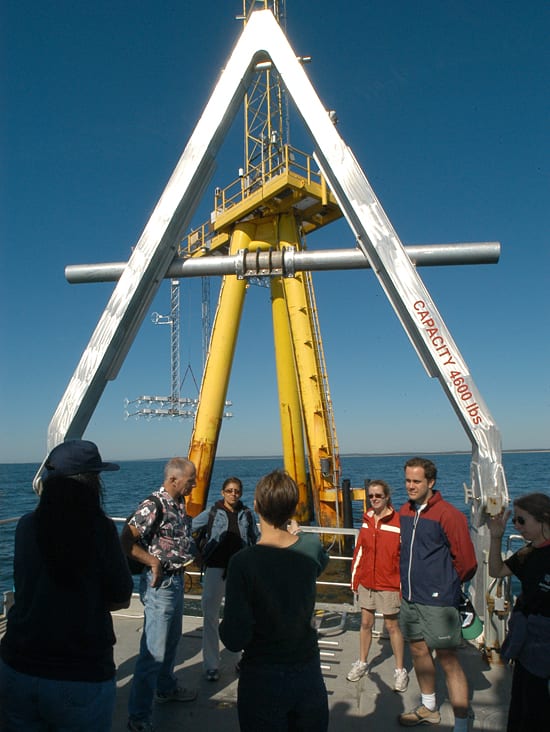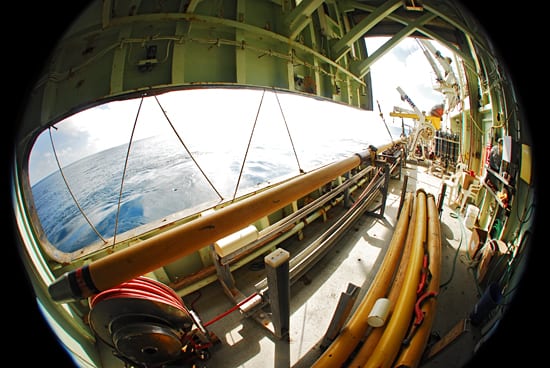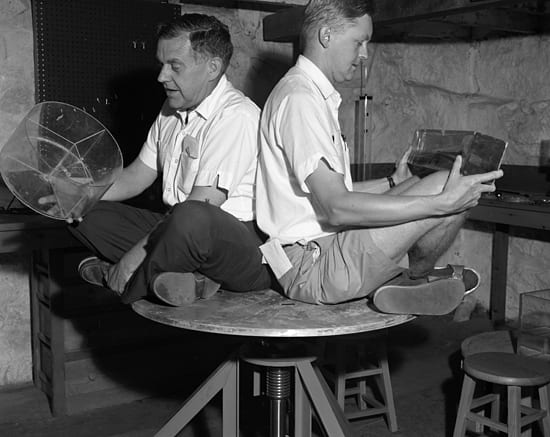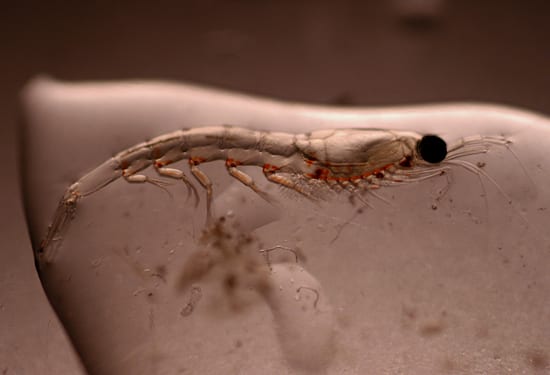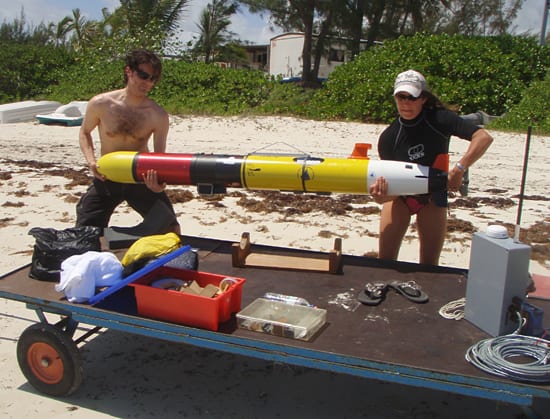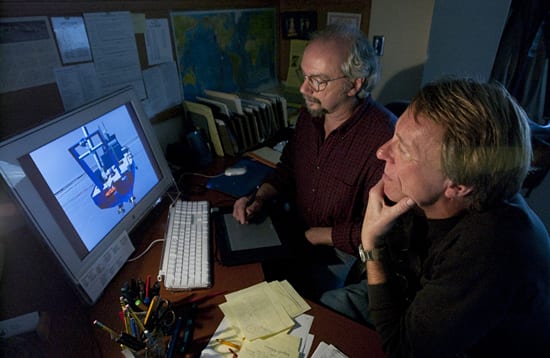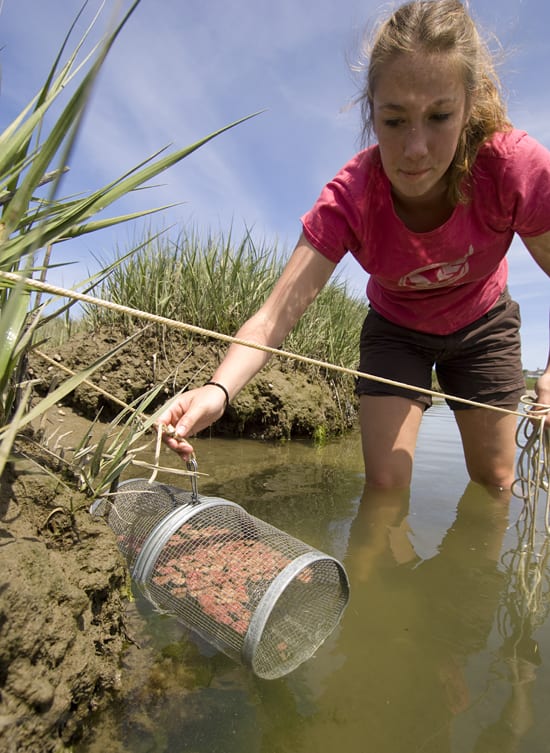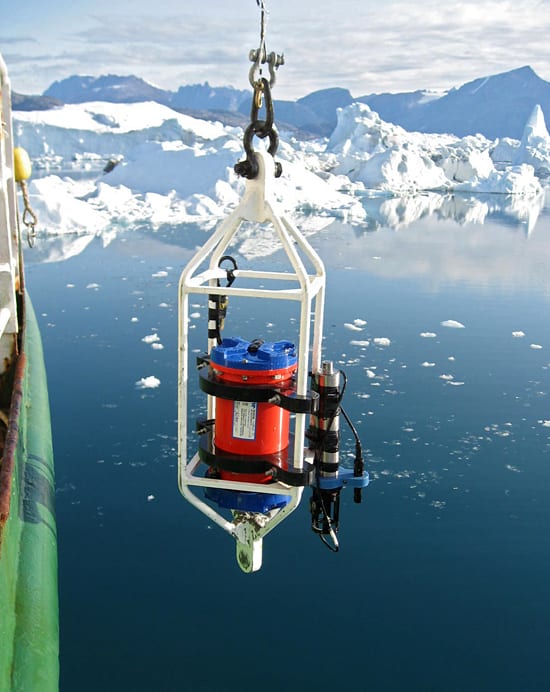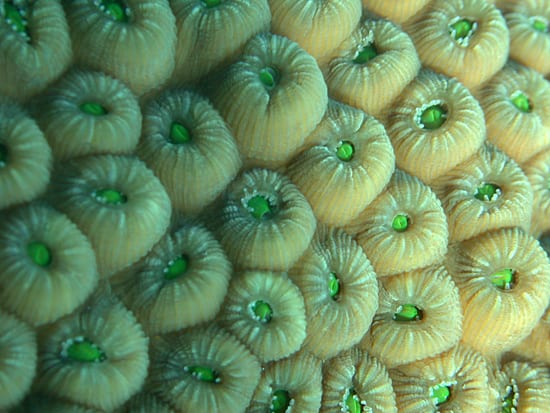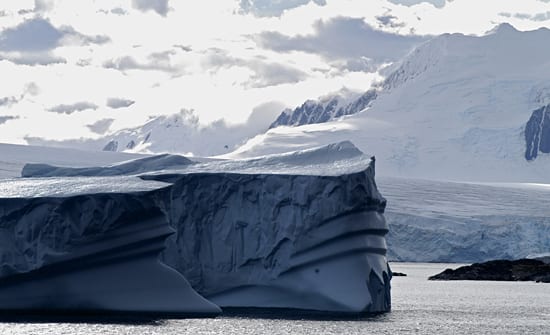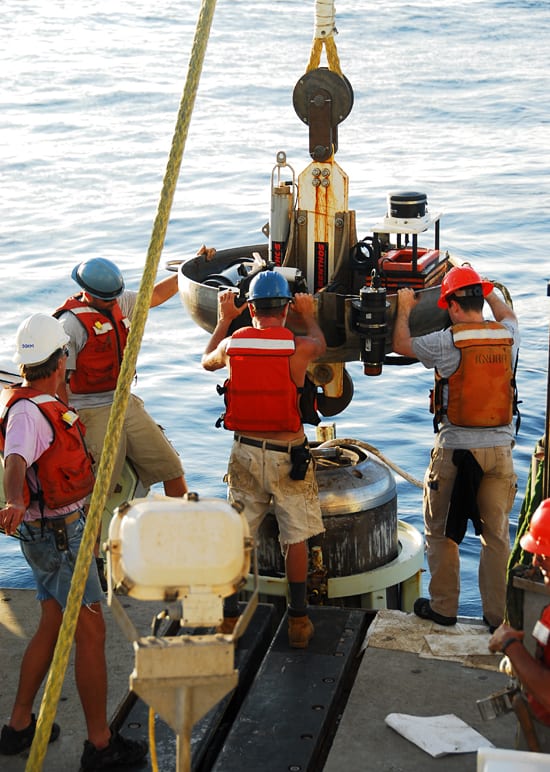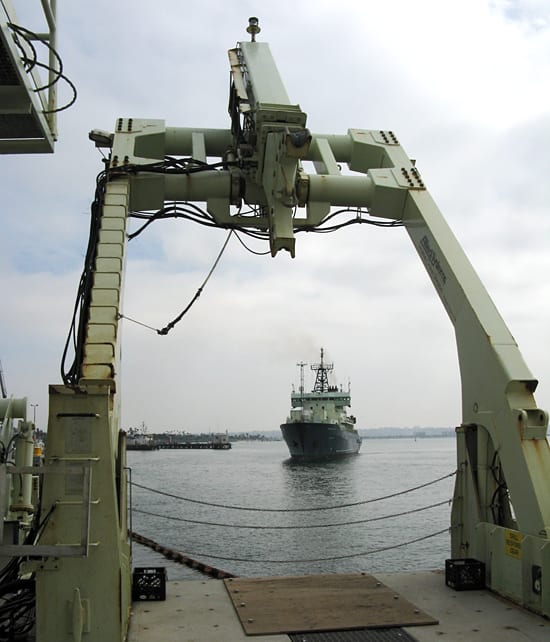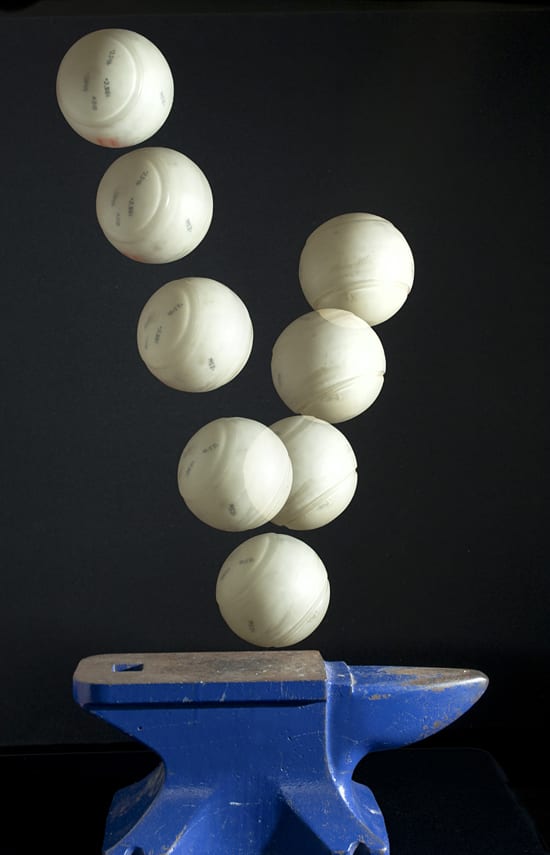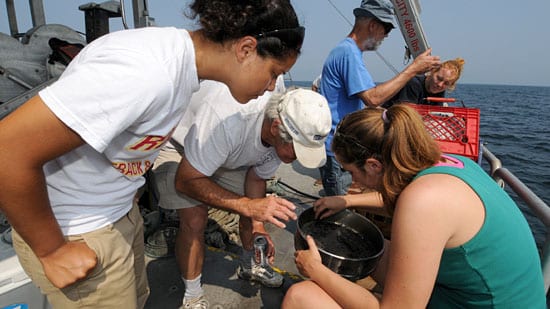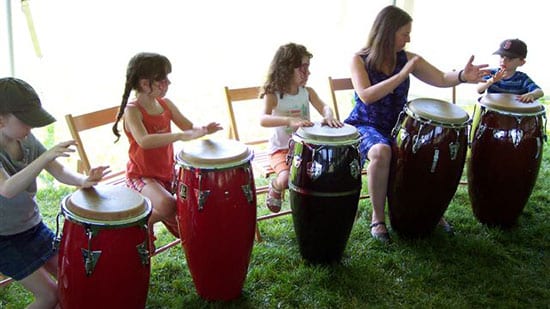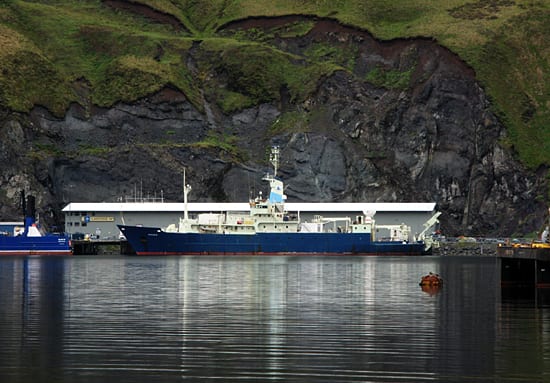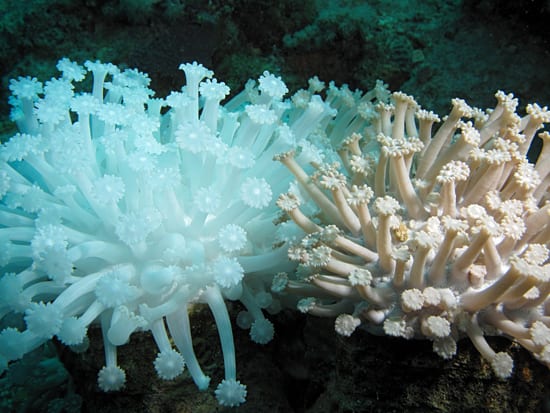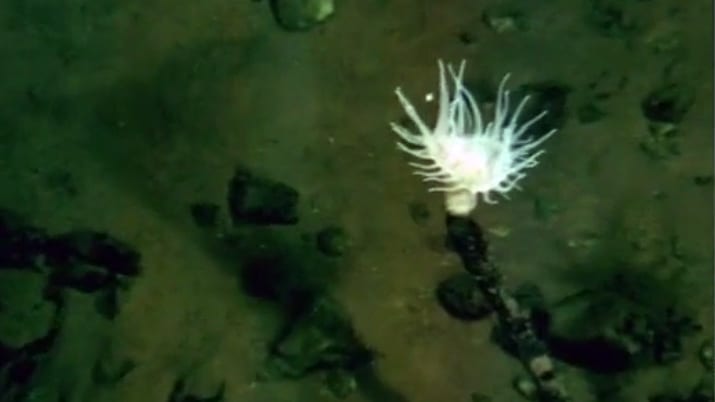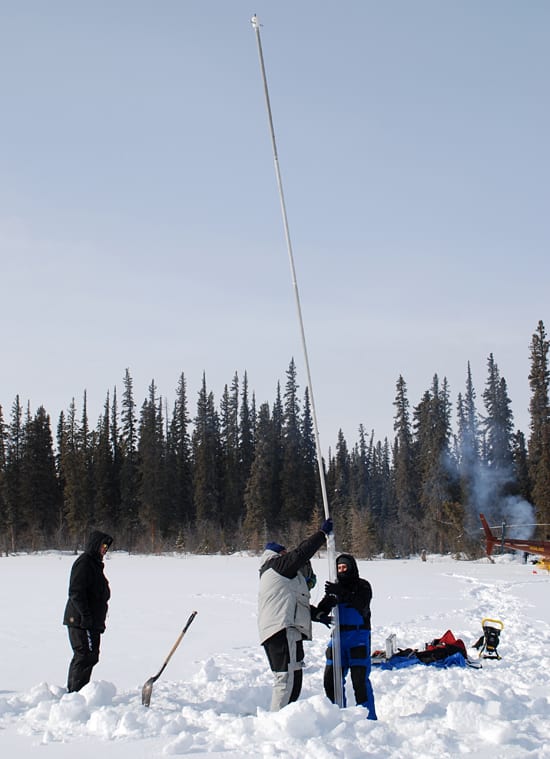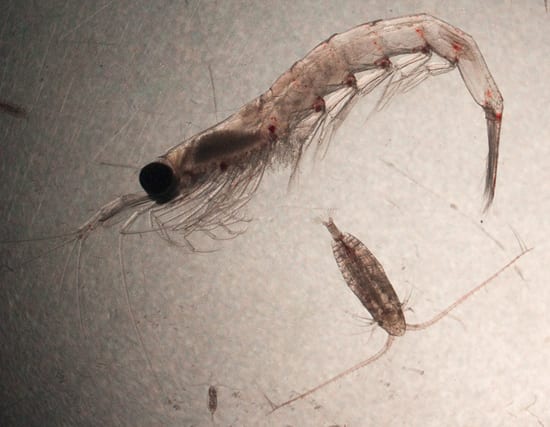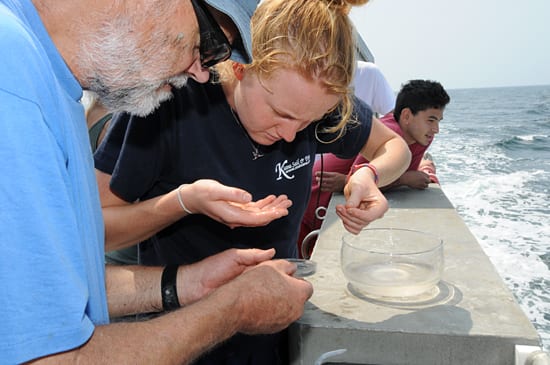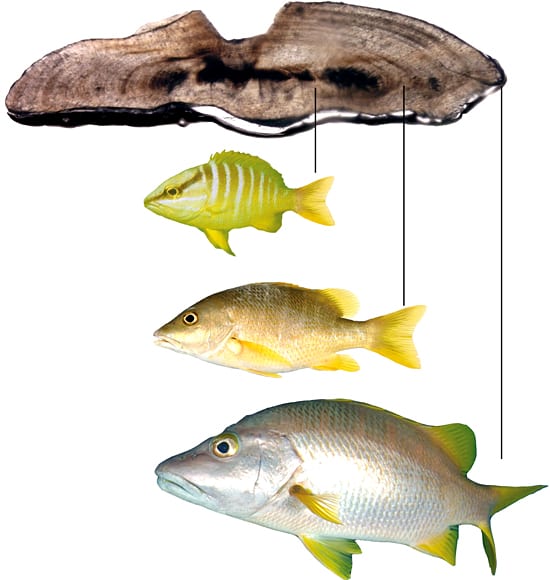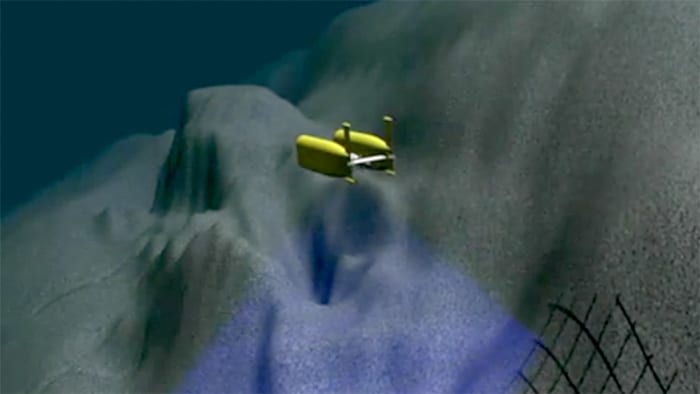Multimedia Items
Journalists at sea
WHOI plankton ecologist Heidi Sosik (center, back to the camera) stands on the fantail of the coastal research vessel Tioga and explains ocean observatories and coastal dynamics to reporters participating…
Read MoreMade to fit
A fisheye view of the Woods Hole Oceanographic Institution Long Core shot from the starboard hangar of the research vessel Knorr. The wall of the hangar, the upper portion now…
Read MoreAs the seawater turns
As principal instructors for the Woods Hole Geophysical Fluid Dynamics Program in 1968—the topic was “general circulation of the ocean”—physical oceanographers Henry Stommel (left) and Lou Howard hopped onto a…
Read MoreMighty microorganism
Tiny species like this Euphausid photographed in a drop of water are prey to larger organisms in the oceanic food chain. About the size of a fingernail, the shrimp-like creature…
Read MoreCoastal Observer
Oceanographic Systems Laboratory engineer Phil Bouxsein (left) and engineering technician Amy Kukulya lift a Remote Environmental Monitoring UnitS(REMUS) vehicle onto the transport cart. REMUS vehicles are robotic submarines resembling torpedoes…
Read MoreVisual explanations go a long way
WHOI animation specialist Jack Cook (center) works with senior research specialist Jim Broda (right) on an animation of the WHOI Long Core system for the research vessel Knorr. WHOI Creative…
Read MoreHere fishy, fishy
Summer Student Fellow Abigail LaBella —shown here collecting fish samples from Scorton Creek in Sandwich, MA — spent her summer studying the genetic interaction between hypoxia (low oxygen) and endocrine…
Read MoreFrom one village to another
Hauke Kite-Powell (at left in baseball cap), a Marine Policy Center research specialist, hosted a group of visitors this summer from the island of Zanzibar off Tanzania, where he is…
Read MoreGreenland’s glaciers
A Conductivity, Temperature, and Depth (CTD) recorder and an Acoustic Doppler Current Profiler (ADCP) are deployed in Sermilik Fjord in Greenland where WHOI researcher Fiamma Straneo and colleagues are measuring…
Read MoreA plethora of polyps
Polyps of the star coral, montrastrea cavernosa, with a green algae at its center, used as a source of food. Star coral are common in the tropical Atlantic Ocean and…
Read MoreBlue ice sculpture
An iceberg stands between the Antarctic Research Support Vessel Laurence M. Gould and Palmer Station, as viewed from the Southern Ocean around Antarctica. Researchers spent several weeks in the winter…
Read MoreCoring for Climate Clues
In April 2009, onboard the Research Vessel Knorr, the at-sea operations team maneuvers the Long Core release module into place prior to its deployment. The release module has an acoustic…
Read MoreA-Frame(d) Atlantis
As the R/V Atlantis sails into port, it is seen from within R/V Knorr‘s A-frame while docked at San Diego in June of this year. Owned by the US Navy,…
Read MoreFloating without imploding
To allow a heavy deep-sea vehicle like Nereus to float in the deepest depths, engineers at Woods Hole Oceanographic Institution (WHOI) used an entirely new system of ceramic spheres to…
Read MoreSummer Fellows
2009 Summer Picnic
Finding Titanic
The sunken luxury liner R.M.S. Titanic was located on September 1, 1985 by the Woods Hole Oceanographic Institution’s new imaging vehicle Argo, towed from the Research Vessel Knorr. Today the…
Read MorePartially bleached
Many corals and other marine animals contain dinoflagellate symbionts that provide nutrition to the host from photosynthesis. These symbionts can be expelled from the host following exposure to elevated temperature…
Read MoreNereus in the Challenger Deep
Originally published online May 31, 2009
Read MoreDeep in the Delta
After their helicopter landed on a remote lake in the Mackenzie River Delta, marine geochemist Daniel Montluçon (in blue), geologist Liviu Giosan (in grey), and Allen Firth (Gwich’in observer, in…
Read MoreSizing up zooplankton
Zooplankton come in a wide range of sizes, for comparison, here’s a Calanus copepod next to a krill. The krill or euphausiid is about one and one-half centimeter long while…
Read MoreCollecting and counting
Retired WHOI researcher Hovey Clifford instructs Summer Student Fellow Tara Hetz in collecting animals derived from towed samples during the recent cruise onboard R/V Tioga. The glass dish they are…
Read MoreRing around the ear bone
As a schoolmaster snapper grows, its ear bones, or otoliths, form sequential rings, much like a tree trunk, corresponding to different times in the fish’s life. Each ring in the…
Read MoreNereus at Work
HROV Nereus can operate either as an autonomous, free-swimming robot for wide-area surveys, or as a tethered vehicle for close-up investigation.
Read More
